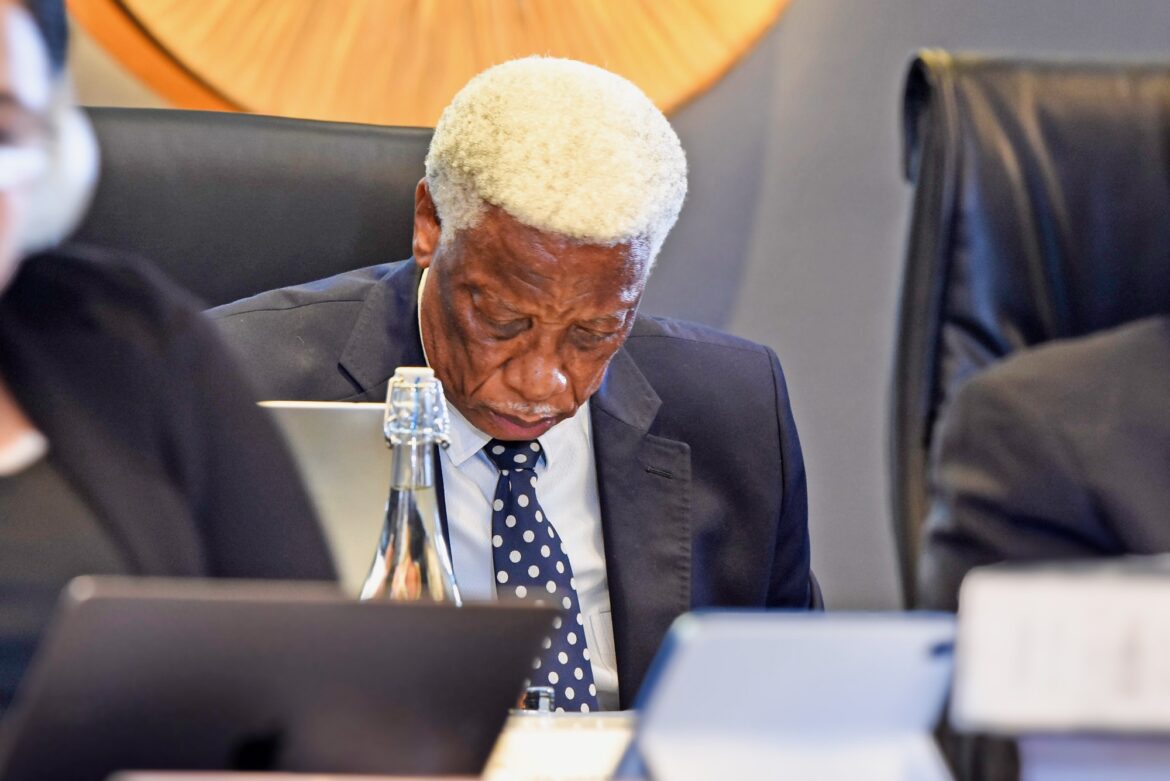The ongoing case against Eastern Cape High Court Judge President Selby Mbenenge has become a complex and emotionally charged legal battle, with accusations of sexual harassment being fiercely contested. At the heart of the matter is Andiswa Mengo, a former judge’s clerk who claims Mbenenge sexually harassed her during their time working together. As her evidence was completed in front of the Judicial Conduct Tribunal, Mengo faced intense questioning from Advocate Muzi Sikhakhane, who represents the judge. Sikhakhane’s cross-examination focused on whether Mengo had been honest in her account, specifically challenging her over the sexual messages she had sent to the judge.
Mengo’s complaint painted a disturbing picture of the relationship, in which she alleged that Judge Mbenenge had made unwanted sexual advances and sent inappropriate messages. However, during cross-examination, Sikhakhane pointed out a key contradiction—Mengo had omitted details of her own messages to Mbenenge, some of which were sexually explicit. He confronted her with one message in which she stated she wanted “the private part halfway in,” and another in which she commented on her sexual preferences, suggesting she enjoyed being “surprised.” Sikhakhane suggested that by leaving out these exchanges from her complaint, Mengo was attempting to portray herself as the innocent party while casting the judge as the sole aggressor.
Mengo responded that she had omitted these messages because she was trying to convey what she perceived to be the judge’s inappropriate behavior, and that she was too afraid of the judge to include her own role in the communication. Sikhakhane, however, pressed her on whether this selective presentation of evidence was an attempt to manipulate the tribunal’s perception of events. “You want to portray yourself as the good party and him as the bad party,” he stated. Mengo did not deny the salacious content of the messages but insisted that her interactions with the judge were motivated by fear and the need to maintain a working relationship with him in the court.
The advocate’s questions also zeroed in on the inconsistency in Mengo’s testimony. She had previously admitted to “lying” to the judge in some of their messages, responding to what she thought Mbenenge wanted to hear rather than what she truly felt. Sikhakhane seized on this, asking her why she had lied and whether this made her accusations any less credible. Mengo explained that she was afraid of the consequences if she did not comply with the judge’s advances. She emphasized the difficulty of balancing her professional responsibilities with the harassment she allegedly faced.
The heart of the matter, as Sikhakhane pointed out, is not whether Mengo and Judge Mbenenge exchanged flirtatious or sexually explicit messages—it is whether those messages were unwanted and created a hostile, intimidating environment for her. Sikhakhane emphasized that the tribunal’s job was not to judge the morality of their interactions but to determine whether the judge’s conduct amounted to harassment.
Mengo, on the other hand, painted a harrowing picture of the toll the situation had taken on her. She spoke of how the experience had “broken” her, leaving her feeling stripped of dignity and self-respect. “It took away the kindness I always showed to my colleagues and people around me,” she told the tribunal. The emotional toll was evident in her voice as she described how the experience had “torn her apart” and left her feeling exposed and vulnerable.
In her testimony, Mengo revealed the deep emotional and psychological impact of what she had endured, explaining that her decision to come forward was not just about seeking justice for herself, but about empowering other women in similar situations to find the courage to speak out. She expressed her desire to raise awareness about the prevalence of harassment in the workplace and to help others who might be suffering in silence.
When asked directly if she had ever been in a romantic relationship with Judge Mbenenge, Mengo firmly stated, “Never,” which further fueled the contention that the sexual advances were unwelcome and unsolicited.
As the tribunal continues to deliberate on the evidence presented, the case highlights the difficult balance between accusations and the right to a fair defense. The tension between Mengo’s claims and the judge’s defense underscores the complexity of sexual harassment cases, especially in professional settings where power dynamics play a crucial role. The outcome of the investigation could have significant implications not only for the individuals involved but for the broader legal community, particularly in terms of how harassment complaints are handled within South Africa’s judiciary.
